- Details
- Category: Industry News
 Lake Success, N.Y. — Advantage Funding, a provider of finance to small and medium businesses in the U.S., has named Lisa Lersner as CEO and president. She brings more than 25 years of financial services experience to the post.
Lake Success, N.Y. — Advantage Funding, a provider of finance to small and medium businesses in the U.S., has named Lisa Lersner as CEO and president. She brings more than 25 years of financial services experience to the post.
 Advantage Funding CEO and President Lisa Lersner “Lisa has the expertise and executive abilities to lead Advantage Funding’s development and execute on its growth strategy,” says Evert den Hollander, chairman of the company. “Her career has focused on managing the strategic, financial and operational activities of growing companies.”
Advantage Funding CEO and President Lisa Lersner “Lisa has the expertise and executive abilities to lead Advantage Funding’s development and execute on its growth strategy,” says Evert den Hollander, chairman of the company. “Her career has focused on managing the strategic, financial and operational activities of growing companies.”
Lersner most recently held the role of CFO of CapitalSpring, a registered investment advisor with both a specialty finance and asset management platform. Lersner began her career working in the vendor and commercial finance divisions of Citicorp North America and Chrysler Capital.
“I am very excited to be joining Advantage Funding and to be leading the company through its next growth phase. I appreciate the opportunity to build upon the strong commercial lending platform and market position currently in place,” notes Lersner.
Visit advantagefund.com for more information.
[CD0217]
- Details
- Category: Industry News
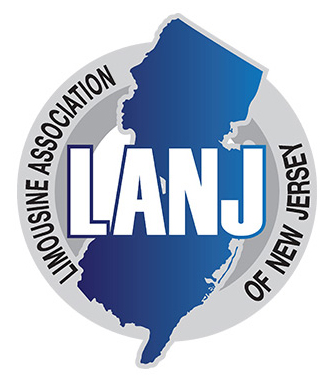 Trenton, N.J. —The bill that Assemblymen Joseph Lagana, Troy Singleton, and John Wisniewski sponsored to protect customers of Uber, Lyft, and other ride-hailing services was signed into law on Friday by N.J. Governor Chris Christie.
Trenton, N.J. —The bill that Assemblymen Joseph Lagana, Troy Singleton, and John Wisniewski sponsored to protect customers of Uber, Lyft, and other ride-hailing services was signed into law on Friday by N.J. Governor Chris Christie.“New Jersey has no safety and insurance standards whatsoever to govern an industry that has the potential to affect all motorists—regardless of whether or not they have a direct affiliation with a transportation network company. I admire the modernization these companies bring to transportation, but that does not excuse them from an obligation to conduct business safely,” said Lagana (D-Bergen/Passaic). “Residents of our state who take advantage of ride-hailing services must be able to do so without compromising their own well-being or that of other drivers on the road.”
 LANJ President Jason Sharenow
The new law (A-3695), the “Transportation Network Company Safety and Regulatory Act,” establishes statewide standards for TNCs, including requirements regarding driver eligibility, insurance coverage, and records retention. The sponsors noted that the uniformity inherent in the legislation would stabilize the market for TNCs in New Jersey, effectively dispelling discrepancies in standards across different municipalities.
LANJ President Jason Sharenow
The new law (A-3695), the “Transportation Network Company Safety and Regulatory Act,” establishes statewide standards for TNCs, including requirements regarding driver eligibility, insurance coverage, and records retention. The sponsors noted that the uniformity inherent in the legislation would stabilize the market for TNCs in New Jersey, effectively dispelling discrepancies in standards across different municipalities.“Ride-hailing companies provide a valuable service for individuals who may not otherwise have access to transportation, and clearly their business model is effective,” said Singleton (D-Burlington). “This law is aimed at striking a balance that makes public safety the first priority while also allowing transportation network companies to continue innovating.”
“Fundamentally, this is about creating statewide standards to eliminate confusion about how much insurance coverage is appropriate, who has jurisdiction over transportation network companies' operations, and what happens if there's a dispute between a passenger and a driver,” said Wisniewski (D-Middlesex). “We have to create an environment in which these companies can meet the obvious demand while keeping all participants in the market safe.”
The rules and regulations outlined in the bill include:
GENERAL TNC OPERATIONS
 Assemblyman Joseph Lagana
- All TNCs would be required to secure a permit from the Motor Vehicle Commission (MVC). The permit application would require submission of proof of insurance, proof that the TNC is licensed to conduct business in New Jersey, and a $25,000 permit fee, to be paid upon initial application and annually thereafter. The permit may be revoked if the TNC fails to comply with the bill's provisions.
Assemblyman Joseph Lagana
- All TNCs would be required to secure a permit from the Motor Vehicle Commission (MVC). The permit application would require submission of proof of insurance, proof that the TNC is licensed to conduct business in New Jersey, and a $25,000 permit fee, to be paid upon initial application and annually thereafter. The permit may be revoked if the TNC fails to comply with the bill's provisions.- Failure to obtain a permit is subject to a penalty of $500 per day.
- TNCs must adopt a policy of non-discrimination on the basis of destination, race, color, national origin, religious belief or affiliation, sex, disability, age, sexual orientation, or gender identity with respect to riders and potential riders.
- All passengers must be provided with the fare or method by which the TNC calculates the fare.
- All passengers must have the option to receive a fare estimate prior to entering the driver's vehicle.
- Each TNC driver must maintain information on his/her smartphone while using its digital network that would allow a police officer to confirm the following information: the driver's identity and color photo, the vehicle's make and model, the license plate number, and an electronic record of a prearranged ride underway, if any.
 Assemblyman Troy Singleton
DRIVERS
Assemblyman Troy Singleton
DRIVERS- Drivers must be at least 21 years of age.
- Driver applications must include, at minimum, an applicant's address, age, and Social Security number as well as a copy of driver’s license, registration, and insurance.
- All applicants must undergo a driving record check and criminal background check prior to using the app as a driver. The following are among disqualifying crimes that would prohibit the applicant from driving with a TNC: homicide, sexual assault, driving under the influence, reckless driving, and possession or sale of a controlled dangerous substance.
- A driver's picture and license plate number must appear on the app prior to the passenger entering the vehicle.
- Drivers may only solicit rides that are prearranged through the transportation network company.
- Drivers must adhere to a zero-tolerance policy regarding the use of drugs and alcohol.
VEHICLES
- A driver's personal vehicle used to provide rides must meet New Jersey vehicle inspection requirements.
- A driver's personal vehicle must display an identifying marker when the driver logs on to the app as a driver or provides a prearranged ride.
INSURANCE
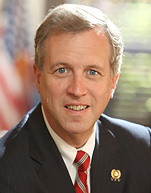 Assemblyman John Wisniewski
- The TNC, the driver, or any combination of the two must maintain a primary auto insurance policy obtained from an insurance company duly licensed to transact business in New Jersey that recognizes the driver as a TNC driver and covers the driver both while he or she is logged on to the app but without a passenger and while he/she is providing a ride.
Assemblyman John Wisniewski
- The TNC, the driver, or any combination of the two must maintain a primary auto insurance policy obtained from an insurance company duly licensed to transact business in New Jersey that recognizes the driver as a TNC driver and covers the driver both while he or she is logged on to the app but without a passenger and while he/she is providing a ride.- If the driver's insurance coverage does not meet the coverage requirements outlined in the bill, insurance maintained by the TNC shall provide the appropriate coverage, beginning with the first dollar of a claim, and the TNC shall have the duty to defend the claim.
- The uninsured and underinsured motorist coverage required when a driver is providing a prearranged ride would increase from the statutory minimums to at least $1,500,000.
- The limitation on lawsuit option set forth in current law will not to be assertable by a transportation network company or driver in any action for damages arising from a prearranged ride, or asserted against any party not receiving personal injury protection benefits in any action for damages arising from a prearranged ride.
COMPANY RECORDS
- Each TNC must maintain a six-year history of rides as well as individual records of each driver for at least five years after the driver stops providing rides with the company.
- In the event of a complaint filed against a driver, the MVC or the Division of Consumer Affairs may inspect the company's records to investigate and resolve the complaint.
- TNC's must enter into a memorandum of understanding with DOT for data collection.
Additionally, that same February 10 session saw the passage of A-3696, an assembly bill that eliminates the 7-percent sales tax on chauffeured ground transportation. As the new law will go into effect May 1, 2017, April 30 is the last day for New Jersey operators to collect sales tax on their services. To learn more about the changes, visit lanj.org/legislation for additional details on the laws that LANJ has been involved in.
The next LANJ meeting is March 29.
Visit lanj.org for more information.
[CD0217]
- Details
- Category: Industry News
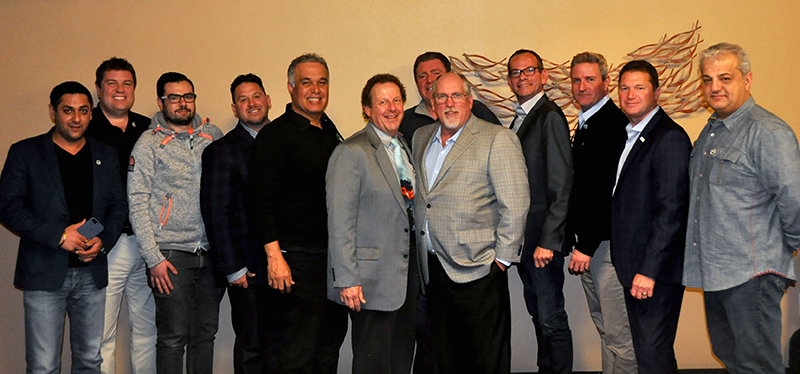 Members of the GCLA board with CD’s Industry & Brand Ambassador Philip Jagiela (center left)
Sacramento — On February 8, Greater California Livery Association (GCLA) continued its annual tradition of heading to the state capital for a Day on the Hill to discuss with elected officials its most urgent issues and biggest concerns. The event was preceded by a February 7 meeting where board members discussed the legislative day’s focus, as well as an array of association matters. CD’s Industry & Brand Ambassador Philip Jagiela attended both days of GCLA activities.
Members of the GCLA board with CD’s Industry & Brand Ambassador Philip Jagiela (center left)
Sacramento — On February 8, Greater California Livery Association (GCLA) continued its annual tradition of heading to the state capital for a Day on the Hill to discuss with elected officials its most urgent issues and biggest concerns. The event was preceded by a February 7 meeting where board members discussed the legislative day’s focus, as well as an array of association matters. CD’s Industry & Brand Ambassador Philip Jagiela attended both days of GCLA activities.
Chief among the meeting’s topics were: airport updates, especially the four-month backlog of obtaining operational permits from San Diego International; the state’s consideration of revoking livery industry oversight from the Public Utility Commission, a move supported by GCLA for want of enforcement; and how the following day’s legislative endeavor would support the association’s prevailing theme of public safety.
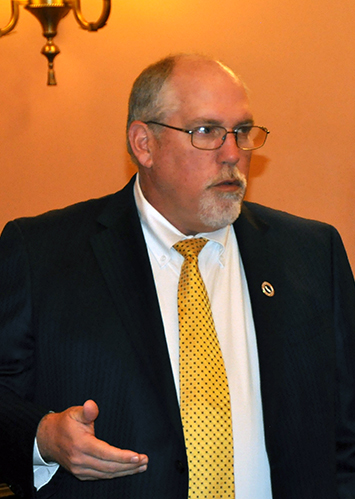 GCLA President David Kinney of API Global
With 21 attendees participating in this year’s Day on the Hill, GCLA was able to send association representatives to more than 30 meetings with elected officials between 9 a.m. to 4 p.m. Armed with talking points and association-supplied information, the GCLA’s team spoke with assemblymembers, consultants, senators, and committees about three primary areas of public safety, illustrating how chauffeured ground transportation’s standards go above and beyond TNCs’ considerably more lax requirements.
GCLA President David Kinney of API Global
With 21 attendees participating in this year’s Day on the Hill, GCLA was able to send association representatives to more than 30 meetings with elected officials between 9 a.m. to 4 p.m. Armed with talking points and association-supplied information, the GCLA’s team spoke with assemblymembers, consultants, senators, and committees about three primary areas of public safety, illustrating how chauffeured ground transportation’s standards go above and beyond TNCs’ considerably more lax requirements.
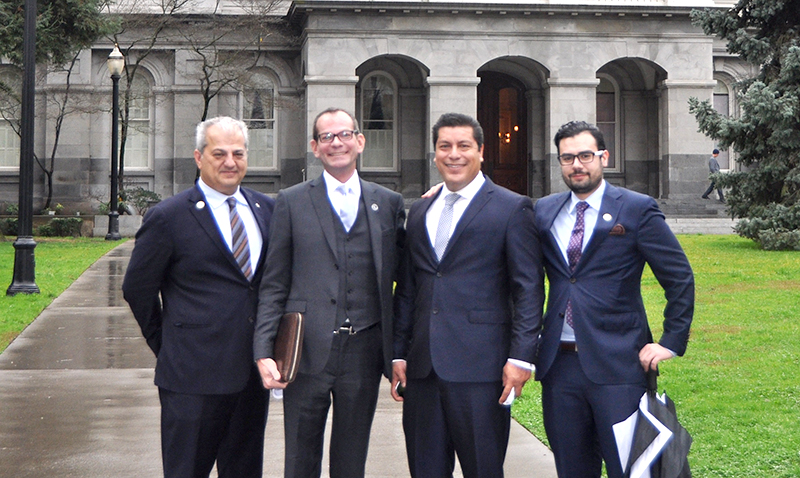 L to R: GCLA Director Mo Garkani of Continental Limousine, GCLA Treasurer Rick Buell of Diva Limousine, Carlos Garcia of Carlos Transportation Service, and GCLA Director Raphael Sousa of SF Limo Express
To emphasize its commitment to safety measures, the day’s discussions zeroed in on the GCLA’s support of SB-20 (“The Bus Safety Bill”), which would require passengers riding in a motorcoach or bus to wear their seatbelts while the vehicle is in motion. Duty of Care discrepancies between this industry and TNCs were also highlighted, as was the legislation that the GCLA will be putting forth to allow transportation providers utilization of Department of Justice background checks in an effort to ensure that all chauffeurs are thoroughly screened.
L to R: GCLA Director Mo Garkani of Continental Limousine, GCLA Treasurer Rick Buell of Diva Limousine, Carlos Garcia of Carlos Transportation Service, and GCLA Director Raphael Sousa of SF Limo Express
To emphasize its commitment to safety measures, the day’s discussions zeroed in on the GCLA’s support of SB-20 (“The Bus Safety Bill”), which would require passengers riding in a motorcoach or bus to wear their seatbelts while the vehicle is in motion. Duty of Care discrepancies between this industry and TNCs were also highlighted, as was the legislation that the GCLA will be putting forth to allow transportation providers utilization of Department of Justice background checks in an effort to ensure that all chauffeurs are thoroughly screened.
The GCLA made a video about its Day on the Hill, which can be seen at goo.gl/ZD8sWD.
The association’s next general membership meeting will be March 13 in Las Vegas.
Visit gcla.org for more information.
[CD0217]

